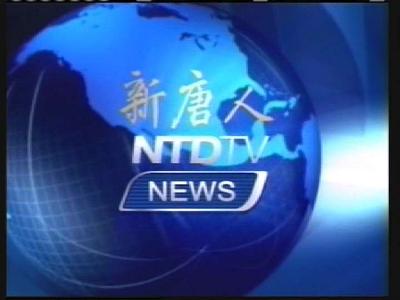Chinese broadcaster appeals to be put back on the air
 Brussels - New Tang Dynasty TV (NTDTV), a Chinese television broadcaster critical of the authorities in Beijing, on Thursday urged Eutelsat, a French-based satellite provider, to resume its transmissions to China.
Brussels - New Tang Dynasty TV (NTDTV), a Chinese television broadcaster critical of the authorities in Beijing, on Thursday urged Eutelsat, a French-based satellite provider, to resume its transmissions to China.
"We are all familiar with the stories that companies like Yahoo and Cisco are assisting the (Chinese) regime on their internet blockage. Now, it looks like Eutelsat is willing to follow suit," said Jenny Fang, NTDTV's director of corporate relations, at a press conference in Brussels.
Eutelsat stopped NTDTV's broadcasts to China on June 16 citing technical problems.
In a statement issued in Paris on July 25, the company confirmed its motives and said it held "absolutely no prejudice against channels broadcast by its satellites and notably NTDTV."
But the network, which is owned by the controversial Falun Gong spiritual movement and has its headquarters in New York, argues that Eutelsat's decision was in fact politically-motivated.
The broadcaster's campaign is backed by two groups which advocate freedom of the press - the International Federation of Journalists (IFJ) and Reporters Without Borders (RSF).
In July, the RSF published the transcript of a telephone conversation in which an unnamed Eutelsat employee said the decision to stop NTDTV broadcasts had been taken by Eutelsat's CEO, Giuliano Berretta, in response to a string of complaints from the Chinese government.
Moreover, the IFJ says Eutelsat can no longer claim, as it has done, that it lacks the capacity to broadcast NTDTV in China, since two other networks - Radio Free Asia and Voice of America have now stopped using its satellite.
"The technicalities of this bar on the broadcaster look increasingly bogus," said IFJ General Secretary Aidan White.
Saying it was no coincidence that the black-out had occurred while the world's eyes were on the Beijing Olympic Games, White called on Eutelsat to "stop hiding behind technical mumbo-jumbo and let this broadcaster operate freely."
The Chinese government strictly regulates the news provided by television networks, radios or internet sites.
NTDTV, which says it wants to "foster understanding between Chinese and Western societies," regularly reports on China's alleged repression campaigns in Tibet or against Falun Gong practitioners.
Satellite receivers are banned in China, but many Chinese people have access to illegal receivers.
The European Union's executive body, the European Commission, says it has written to Eutelsat to ask for a clarification on the matter. (dpa)